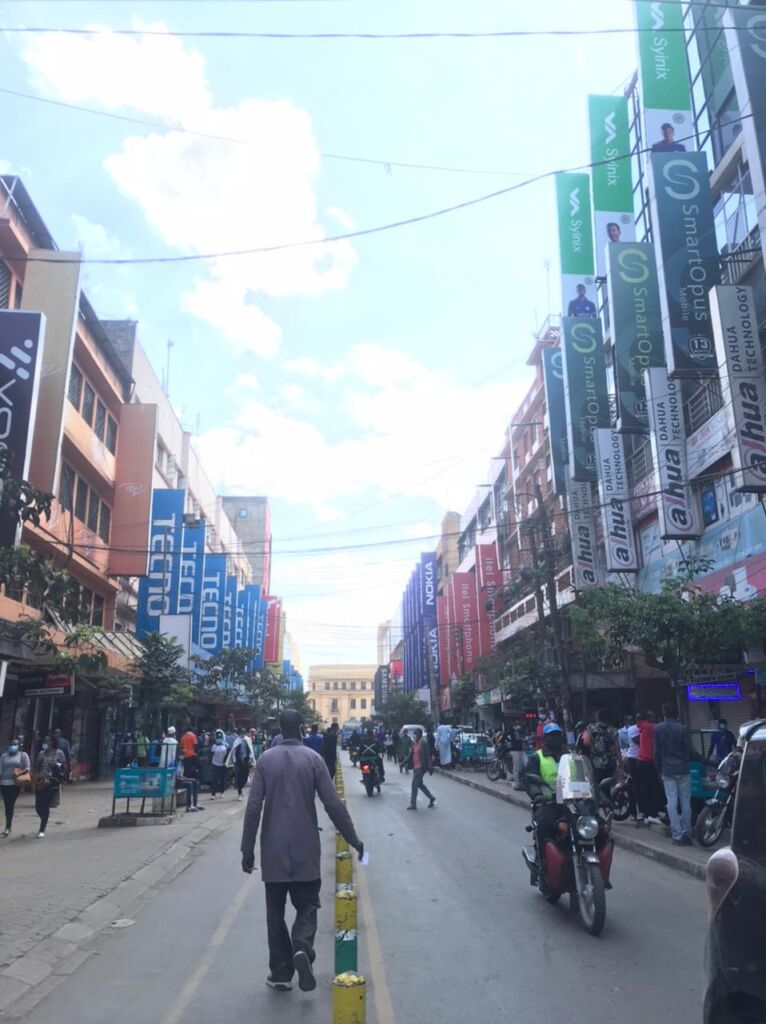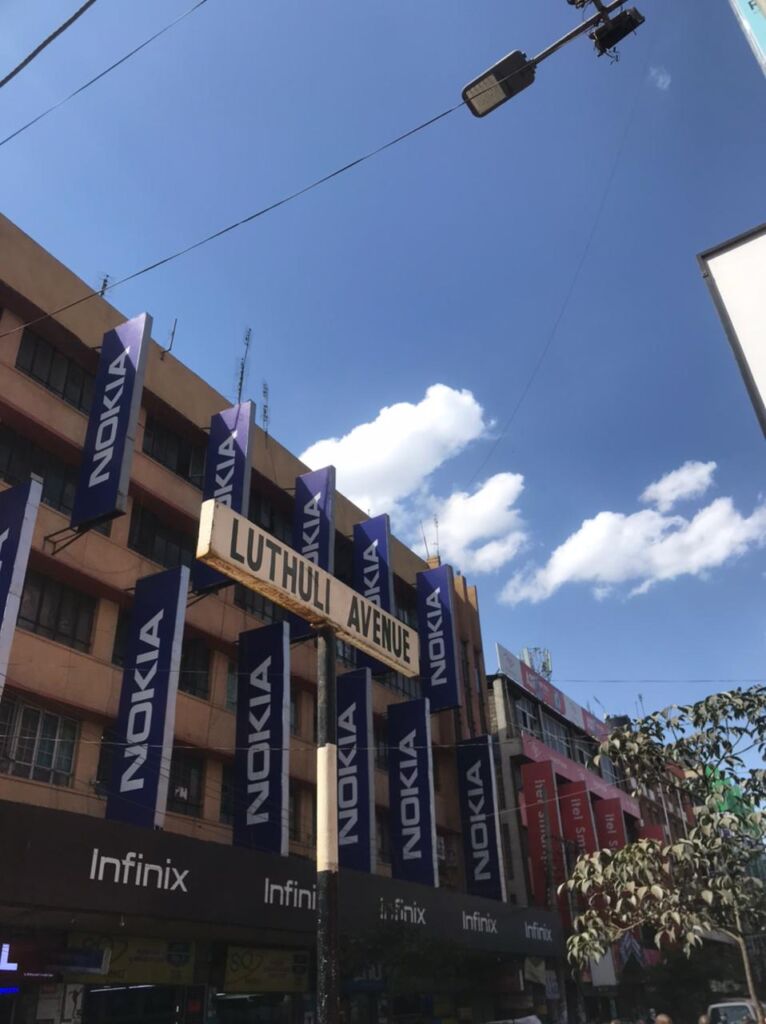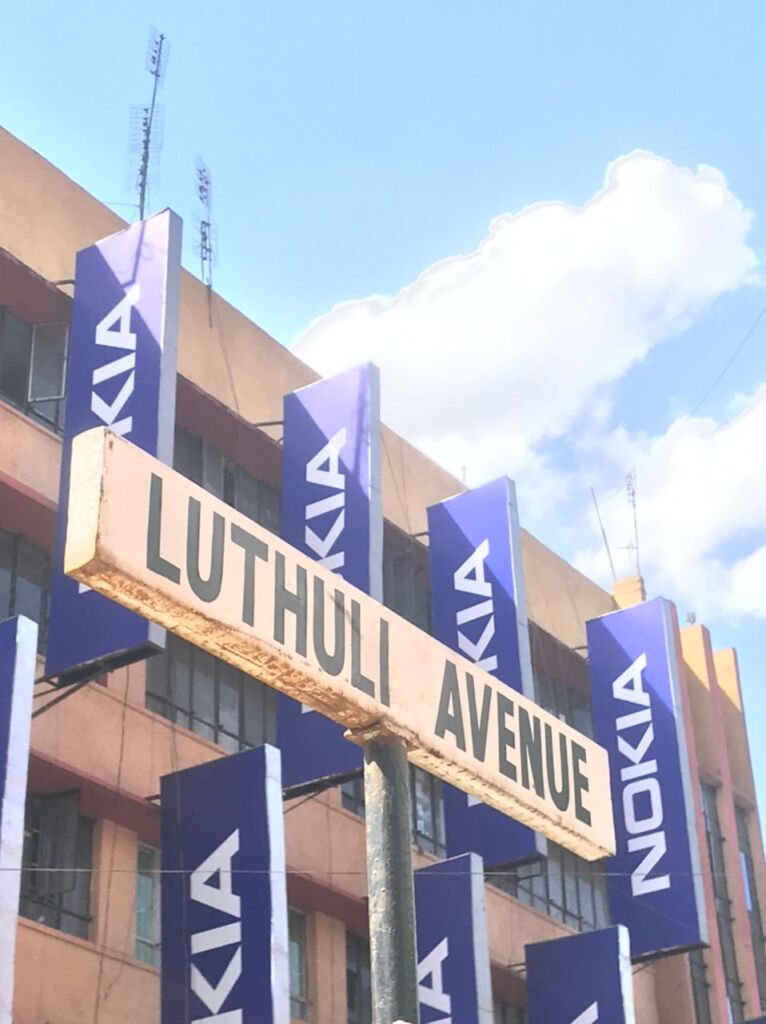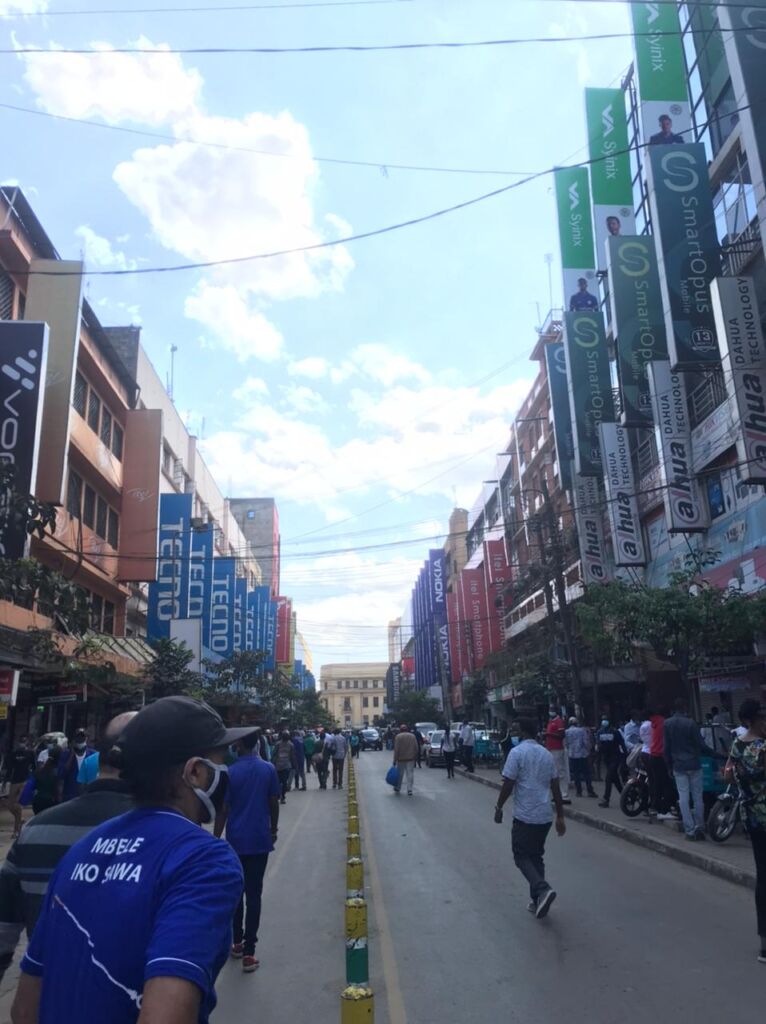Luthuli Avenue, Nairobi is an avenue always buzzing with people, cars, and trolleys trying to access services. The competition for space on this street is always challenging. One uncalculated stop means an accident. But did you know that people are sure careful here? Looking at Luthuli from a top building is therapeutic. You sit staring, and if you are not used to city life, you will keep wondering how people maneuver even when holding hands.

You must have heard why the buzz in Luthuli. Luthuli is the electronics hub in the Nairobi Central Business District. It is the first name that comes to many mouths when someone says they want to buy a TV. Let me surprise you. There is a Television assembling company in the CBD. Yes, TCL televisions are assembled in another famous street just next to Luthuli called River Road.
The company, not known to many, has been in business for years now. The owner, a young man of Somalia origin, is simple and can be a ghost. One minute you see him, the next you don’t. However, if he chooses to walk through the streets, you can’t tell he makes millions in a day. Arrangements and plans to meet him face to face have been futile and don’t seem to bear fruits anytime soon. You call his office, and you’re told he is in Turkey.
Cushites in Luthuli Avenue
Cushites have ventured into the electronics business all over Kenya. When you visit Eastleigh Nairobi, they are the majority in the malls and outside the malls. They have also found space in Luthuli shops. You may not necessarily be served by a Cushite or Somali in the shop, but they own many of these shops. They employ locals and young enthusiastic non-Somalis to run the shops and books. What may also surprise you is that some owners cannot speak Swahili or English fluently. They comfortably speak Somali or languages spoken in the North-East parts of Kenya.

The other parts you can find Cushitic business people in Luthuli are the electronic repair kiosks. Cushites have also invested in the repair business. Here, you see young Somali men who speak Swahili with a heavy Somali accent busy on their computers or holding screwdrivers ready to handle your phone. You will also find Cushites in Sky Mall’s mobile phone spare parts shops, which is arguably the biggest and busiest mall on Luthuli Avenue.
You may wonder why women are managing most Cushite-owned businesses in Luthuli. Is it a way to lure men into buying? It is probably not true because these Somali women are in long veils and observe the Islamic rules on the dressing. What may be true is that they are wives or relatives of the businesses. I don’t see any hidden means to lure people into buying, but I usually link it to how women can focus and efficiently multitask.
Are Somali Business Stereotypes True?
There are many stereotypes about Somalis businesses in Kenya. One of these stereotypes is that Somalis sell smuggled goods and pay no taxes. It is not valid. Somalis do clean businesses and are cheaper than most business people in Kenya. Eastleigh is now the area in Kenya that has more malls than any other part. Somalis thrive in Eastleigh and Luthuli not because they are selling smuggled goods but because they have trust.

An article on The Standard perfectly explains why Somali business people are doing well than locals. The Multi-million TCL business is doing well, and the owner has lost hundreds of millions in a single consignment. They trust almost every customer, especially when selling wholesale. They can easily give products in credit for a customer for whom they have traded several times.
It is also not true that Somali business people don’t pay taxes. It is because their businesses are registered and are run in Kenya. They give an account of goods bought and therefore pay taxes. “The Kenyan currency rates are not determined until Eastleigh turns its daily numbers” is a joke by bankers who believe that businesses in Eastleigh have more significant returns that affect currency in the country.
Marriage And Bussiness
They don’t marry outside their religion. This stereotype is two ways; it is accurate and also not true. Love is a powerful thing, and it is said, it always wins. However, marriages between Somalis and non-Somalis are difficult to find, mainly because of exposure. Cushites and Somalis have their schools where children attend. These schools are mostly filled with children of their ethnicity and religion. As these children grow up, they learn to speak their language and live with their kind.
Marriages between people of the Somali ethnicity have also been witnessed in Kenya. A Kenyan businessman, Jamal Marlow of the Somali race, had a wife ( now divorced), Faith Makau, commonly known as Amber Ray. They have been in marriage for a while. They even had a son together.
Luthuli’s Black sheep
Despite all the thrive and good vibes around Luthuli Business Area, scammers exist. It is sad to hear someone say, “I can’t buy anything in Luthuli.” Some people have bad blood for Luthuli businesses. It is because they were sold fake items contrary to what they wanted.
One man was narrating his misfortune on Twitter. He went to buy a television in one shop in Luthuli. However, he said, he bargained and got the seller to accept his price after making the payment; the seller changed to another that the television won’t work until he pays the total amount. The man asked for a refund since that is what he could afford, but his request could be granted. “Kiendacho kwa mganga hakurudi” he wrote. A Swahili proverb that translates, whatever is paid to the witch doctor cannot be repaid. He ended up borrowing from a family to salvage his initial amount.
Con artists and scammers are also a reason that Somali businesses are thriving in Luthuli. It is rare to find Somalis dealing wrongly. They believe that one customer will bring another, so deal with a customer appropriately.

Now You Know
Now you know how it works. Somalis don’t sell pirated goods. They know how to do scales of business and proper marketing ways. You may not see Somalis in Luthuli shops, and Somali foods but they are low-key growing and making a fortune in a foreign county or country. Also, most people of the Somali ethnicity are not foreigners. They are Kenyans with proper identification.
